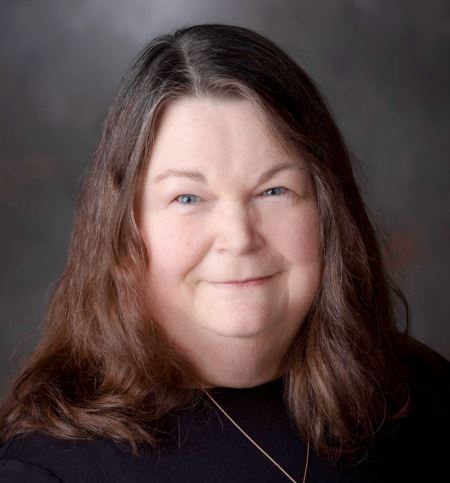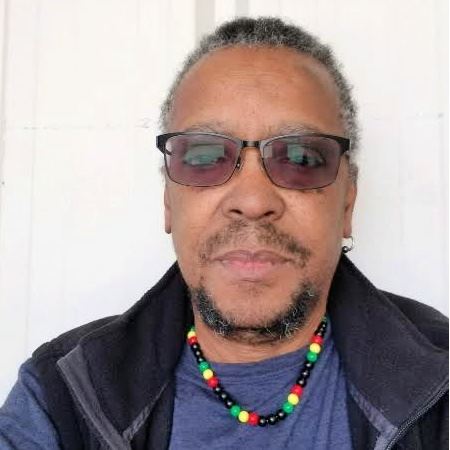Hosted by the Northern California CBT Network
*Although offered online, this webinar qualifies for “Live” CE credits because there will be interaction with the speaker. Please note, we do not record our webinars for distribution.
Description
The recent increase in empirical research on the transgender and gender diverse (TGD) people’s mental health concerns and affirmative mental health services offer CBT therapists an opportunity to serve these clients with an evidence-based approach for the first time. After a brief introduction to terminology and TGD communities’ lived experience, this course will describe the community-based, empirically-derived Trans Collaborations Adaptations for Psychological Services as applied to case-formulation driven CBT for adults. Topics will include incorporating TGD intersectional identities into case formulations, adaptations for common CBT interventions, affirming use of cognitive restructuring around experiences of marginalization, therapists’ implicit assumptions about gender, and progress monitoring tools. We will also address assessing the practice environment to be TGD-affirming. Although the emphasis will be on CBT for common outpatient mental health concerns, we will include some discussion of the CBT therapist’s potential contribution to social, legal, and medical gender affirmation.
Learning Objectives
After this course, attendees will be able to:
1. Incorporate the lived experience and gender identity of TGD clients into their case formulation.
2. Adapt at least two (2) common CBT interventions to be TGD-affirming.
3. Use TGD-specific progress monitoring and adapt at least two (2) general tools to meet the needs of TGD clients.
4. Apply at least two (2) TGD-affirming practice adaptations to their own setting and clinical approach.
References
All of these papers are available at no charge for download at go.unl.edu/transcollaborations. A PDF of the Trans Collaborations Clinical Check-In, our progress monitoring tool, is also available for download on that site.
Hope, D. A., Holt, N. R., Woodruff, N., Mocarski, R., Meyer, H., Eyer, J., Craig, S., Feldman, J., Irwin, J., Pachankis, J., Rawson, K. J., Sevelius, J., & Butler, S. (2022). Bridging the gap between practice guidelines and the therapy room: Community-derived adaptations for psychological services with transgender and gender diverse adults in the Central United States. Professional Psychology: Research and Practice. https://doi.org/10.1037/pro0000448
Holt, N., Huit, T., Shulman, G., Meza, J., Smyth, J., Woodruff, N., Mocarski, R., Puckett, J., and Hope, D. (2019). Trans Collaborations Clinical Check-In (TC3): Initial validation of a clinical measure for transgender and gender diverse adults receiving psychological services. Behavior Therapy, 50, 1136-1149. https://doi.org/10.1016/j.beth.2019.04.001
Holt, N. R.+ Ralston, A. L.,+ Hope, D. A., Mocarski, R., & Woodruff, N. (2021). A systematic review of recommendations for behavioral health services with transgender and gender diverse adults: The three-legged stool of evidence-based practice is unbalanced. Clinical Psychology: Science and Practice, 28, 186-201. https://doi.org/10.1037/cps0000006 +co-first authors
Holt, N.R., Hope, D. A, Mocarski, R., and Woodruff, N. (2019). First impressions online: The inclusion of transgender and gender nonconforming identities and services in mental healthcare providers’ online materials in the USA. International Journal of Transgenderism, 20,49-62. https://doi.org/10.1080/15532739.2018.1428842
Presenters

Debra A. Hope received her Ph.D. from the State University of New York: University at Albany in 1990 under the mentorship of Richard Heimberg. After clinical internship at Medical College of Pennsylvania/Eastern Pennsylvania Psychiatric Institute, she joined the faculty at the Department of Psychology at University of Nebraska-Lincoln. During her first two decades, her research investigated psychopathology and treatment of anxiety disorders, especially social anxiety. She is lead author, with Richard Heimberg and Cindy Turk, on the Oxford University Press Treatments That Work Series, Managing Social Anxiety: A Cognitive Behavioral Approach therapist manual and client workbook now in its 3rd edition. In the early 2000’s, Dr. Hope began to shift her focus to addressing mental health disparities for LGBTQ communities. Then in 2014, she co-founded Trans Collaborations (go.unl.edu/transcollaborations), a community-based research partnership to address health disparities for transgender and gender diverse (TGD) adults in underserved areas with Nathan Woodruff and Richard Mocarski. The work of Trans Collaborations has been funded by federal, university, and foundation grants. Trans Collaborations is currently conducting a small randomized controlled clinical trial of CBT for anxiety, depression, and marginalization stress for TGD adults. Dr. Hope has over 143 publications and several edited books. Until very recently when she became Associate Vice Chancellor and Dean of Graduate Education, she maintained a private practice. She continues to supervise doctoral students in the Rainbow Clinic.

Nathan Woodruff is co-founder of Trans Collaborations and chair of the Local Community Board. He is a long-time community and social justice leader and diversity workshop presenter. Mr. Woodruff’s leadership of the Local Community Board has facilitated their deep and productive partnership with academic team members, leading to rich community-based participatory research. Mr. Woodruff has 16 peer-reviewed publications through his work on Trans Collaborations.
Cancellation
If you register but cannot attend, please cancel your registration prior to the workshop. Refunds are considered on a case-by-case basis prior to the event. Refunds will not be issued after the event.
Questions
If you have any questions, please contact Ayesha Amin-Arsala (support@nccbt.net).

Continuing Education (CE) Credit
The San Francisco Bay Area Center for Cognitive Therapy is approved to offer 3.0 hours* of continuing education (CE). No partial CE credits are granted.
Those who attend this workshop in full and complete the appropriate evaluation form will receive CE credits. Please note that the San Francisco Bay Area Center for Cognitive Therapy will issue credit only to those who attend the entire workshop. Those who arrive more than 15 minutes after the start time or leave before the workshop end will not receive CE credits.
The San Francisco Bay Area Center for Cognitive Therapy (Provider Approval No.: CEN034) is approved by the California Psychological Association to provide continuing professional education for psychologists. The San Francisco Bay Area Center for Cognitive Therapy maintains responsibility for this program and its content.
The San Francisco Bay Area Center for Cognitive Therapy (Provider Approval No.: PCE288) is approved by California Board of Behavioral Sciences to provide continuing professional education for Marriage and Family Therapists and Licensed Clinical Social Workers. The San Francisco Bay Area Center for Cognitive Therapy maintains responsibility for this program and its content.
Disclosure Information
The California Psychological Association and the American Psychological Association require that continuing education providers inform participants as to the source, amount, nature, and disposition of any funding used to support the continuing education activity, whether in the form of educational grants, cash contributions, or in-kind contributions. Individuals in a position to influence course content must also disclose whether they have one or more relevant financial relationships with individuals and companies who have a financial interest in activity content. These individuals include the CE Advisory Committee of the San Francisco Bay Area Center for Cognitive Therapy (SFBACCT) and the Steering Committee of the Northern California Cognitive Behavior Therapy Network (NCCBTN).
Institutional Conflict of Interest Disclosure
The San Francisco Bay Area Center for Cognitive Therapy does not receive commercial support for any of the continuing education activities it provides.
Individual Conflict of Interest Disclosure
Joan Davidson, PhD, SFBACCT CE Advisory Committee, has no relevant financial relationships or conflicts.
Janie J. Hong, PhD, NCCBT Network Leadership Committee, has no relevant financial relationships or conflicts.
Nancy Liu, PhD, NCCBT Network Steering Committee, has no relevant financial relationships or conflicts.
Lynn Martin, NP, NCCBT Network Steering Committee, has no relevant financial relationships or conflicts.
Daniela J. Owen, PhD, SFBACCT CE Advisory Committee, has no relevant financial relationships or conflicts.
Simone Madan, PhD, SFBACCT CE Advisory Committee, has no relevant financial relationships or conflicts.
John R. Montopoli, LMFT, LPCC, NCCBT Network Steering Committee, has no relevant financial relationships or conflicts.
Sharon Smith, MFT, MSW, NCCBT Network Steering Committee, has no relevant financial relationships or conflicts.
Katherine Schulz, LCSW, NCCBT Network Leadership Committee, has no relevant financial relationships or conflicts.
Melinda White, MFT, NCCBT Network Steering Committee, has no relevant financial relationships or conflicts.
Speaker Conflict of Interest Disclosure:
Debra Hope, PhD, Workshop Leader, has no relevant financial relationships or conflicts.